Some time ago, an article in the circle of friends called "Tencent has no dreams" caused a heated discussion. At the beginning of the article, "Tencent is losing its product ability and entrepreneurial spirit and becoming an investment company...", which has triggered the whole technology. Circle the thought of the word "dream". Under the wave of artificial intelligence, the Internet giants are looking for their own dreams and focus. Ali has frequently made efforts in the semiconductor industry. Whether it is a wholly-owned acquisition of Zhongtianwei, or investing in five chip companies such as Cambrian, Barefoot Networks and Shenjian, they are showing their dreams of creating a "core" to the industry. In Baidu, in recent years, it has been actively deploying the field of automatic driving. Not only has the Smart Vehicle Division been established, but also the autopilot software platform “Apollo†was launched in 2017, and it was shown to the people throughout the country on the spring evening. In contrast, Tencent, who holds a lot of capital and invests everywhere, is its dream? By sorting out the investment situation of Tencent in the robot industry in recent years, and in-depth dialogue with practitioners and investors in the industry chain, it found that Tencent is laying out its layout around robots. From the investment strategy of “selecting the best†to the robot products with IP attributes, Tencent is trying to explore its next AI capability in the hardware field through multiple collisions with the robotics in capital, technology and products. Human-computer interaction is the entrance, and robots are one of the most important areas. In the past two years, Tencent has frequently increased the number of robotics industry. In the past two years, it has invested hundreds of millions of dollars in the world, betting on seven robot companies with different scenes, and established the robotics laboratory Robotics X to develop robotics. And its origins with robots can actually be traced back to this wave of AI waves that have not yet emerged in 2010. Intensive layout of the robot industry, hundreds of millions of dollars to bet on seven companies On May 3, a financing news shocked the AI ​​circle, the amount of 820 million single-round financing, and the valuation of 5 billion US dollars made the technology of the AI ​​industry the focus of the AI ​​industry. What's more interesting is that this round of C round financing of You must be led by Tencent. According to sources, Tencent has invested 120 million US dollars in this round of financing. However, this is not the first time Tencent has invested in a robot company. In August 2017, Tencent raised RMB 50 million for the A-wheel of the humanoid robot enterprise in Shenzhen. On October 26, 2017, Tencent invested $28 million in Canadian intelligent robot company Kindred Systems. In the same week, Tencent also participated in the C-round financing of the educational robot company Wonder Workshop in California, the amount is unknown. In November 2017, Tencent turned its attention to the country. At the beginning of the month, Tencent participated in the technology of the Shenzhen Artisan Society. Two weeks later, Tencent led the A round of financing for the domestic commercial service robot enterprise Cloud Trace Technology. In 2018, Tencent has participated in the investment of two robot companies so far, which is the A round of financing of the US delivery robot Marble on April 25, and the C-round financing of the shocking AI circle on May 3 . Tencent's investment business is currently under the responsibility of the Tencent Industry Win-Win Fund. Tencent's investment fund started in 2011, and the current team size is about 50 to 60 people. The business is mainly handled by four executive directors Yao Leiwen, Xia Wei, Lin Haifeng and Chen Shaohui. Tencent invests in the inherent logic of the robotics industry Zhang Haichun, a veteran of the industry and a continuous entrepreneur, believes that Tencent has always mastered the entry of C-side users in the process of moving from the PC era to the mobile Internet era, and this has made Tencent have huge user data. At present, although the new round of human-computer interaction entrance is shifting, it has not yet reached the specific field. Therefore, Tencent is actually speculating on the next generation of human-computer interaction portals with its user preference data, and using capital to lock up all possible areas. Tencent, which catches up with the Internet dividend, is naturally lacking, but the fields of e-commerce, search, and hardware are not satisfactory, and this is determined by its genes. Therefore, the field of Tencent's investment is mostly in areas that it is not good at, such as Jingdong, which is an e-commerce company, Sogou, which is a searcher, and a large-scale investment in robotics. From the perspective of the robot industry, we have dismantled the internal logic of Tencent's investment robots. We found that Tencent's investment in the robot industry is not limited to categories, geographies and rounds. It also values ​​the company's development potential. In more detail, it is the company's background. , cooperation opportunities, market potential. 1, a wide range of categories, focusing on hot areas Tencent has invested heavily in robots from seven years of investment in robots. In addition to industrial robots and special robots, Tencent has invested in service robots from To B and To C. Among them, there are both humanoid robots such as Ubisoft and Leju, as well as educational robots, entertainment robots, and commercial service robots. The industries involved in these companies are also the hottest areas for robotics applications. Among them, the commercial service category is a key direction for the continuous influx of robot companies in recent years. Domestic industrial leading companies such as Xinsong are also launching the service robot "Songuo Three Musketeers", and the sweeping robot giant Cobos also launched " Wangbao" robots, some small and medium-sized enterprises' products are very diverse. Cloud Trace Technology Commercial Service Robot Yunfan Tencent invested in the business service robot company Cloud Trace Technology in November 2017. Founded in 2014, Tencent is a company that develops robotic indoor positioning navigation and mobile technology. At present, Cloud Trace Technology has launched three self-developed commercial service robot products: “Intelligent Commercial Service Robot Runâ€, “Smart Mobile Platform Water Drop†and “Large Screen Display Interactive Robot Yunfanâ€. In addition, Cloud Trace Technology also established the Yunxuan Academician Engineering Station in conjunction with Li Deyi, an academician of the Chinese Academy of Engineering, in 2016. This is also the first academician workstation in China to serve robotics research. At the GAITC Global Artificial Intelligence Technology Conference held on May 19th, Yunshen Technology's Run Robot also became the only robot to serve the guests. In addition to commercial service robots, entertainment and educational robots have always been the most popular category in the robotics industry. At the end of March this year, iQiyi launched a robot fighting variety "Robot Hegemony", among which GEIO series robots were produced by Shenzhen Artisan Society. And this company, in November 2017, won the Ten round of financing of Tencent. Founded in 2015, the company is a small robotics and derivatives company that specializes in the Ganker and GEIO series of fighting robots. Operators can control robots to fight against other robotic players. At the same time, Ganker's modular design allows players to easily assemble a robot in action within ten minutes. 2, not limited to the region, but the most in Central America According to the TOP10 ranking of active capital overseas distribution institutions in 2017, Tencent became the most active CVC with 28 overseas investment events, and the investment volume was twice that of the second Ali. From the perspective of seven robots created by Tencent, North American companies occupy three seats, intelligent robot company Kindred Systems, educational robot company Wonder Workshop and food delivery robot founder Marble. Zhang Haichun told Zhiwu that Tencent has invested in many universities and research institutions in addition to investing in robotics overseas. Some projects will not be applied in 5-8 years. In his view, the short-term technology realization is not the purpose of Tencent. Tencent is trying to invest in technology, products, and user portals in the form of investment, with a view to opening up the new interactive import industry chain in the future, even if it is not the first one. Will not be left behind. Among the robot companies invested by Tencent overseas, Wonder Workshop is an educational robotic founder founded in 2012 in the Bay Area of ​​California, focusing on STEM programming robot products. Dash, Dot programming robots, and the first programming robot Cue for children over the age of 11 have been introduced. Recently, Tencent’s American food delivery robot founder, Marble, was founded in 2015. In April last year, the company launched an automatic meal delivery robot in cooperation with the US review site Yelp, and subsequently announced a partnership with the takeaway company DoorDash. The second generation of robots will be launched this year. At the same time, Marble said it will double its investment in the “last mile logistics†and will not only be limited to food delivery, but will also expand its distribution business to pharmaceuticals and the wider retail sector. Currently, the Marble Delivery Robot has been tested several times in local restaurants in San Francisco. 3, value potential, investment after the A round We found that every investment in Tencent's robots is well thought out, not "buy and buy" directly. These robot companies invested by Tencent have great potential in their respective fields, and this judgment is based on the company's core team background and technical strength. At the same time, Tencent is also more stable in terms of robot investment. It is when these companies come up with actual products, and it is really going to be applied. Therefore, Tencent’s investment also occurs after the A or A round. For example, in August 2017, Tencent invested in Leju Robot, a company founded by three Harbin Institute of Technology Dr. Leng Xiaotong, Chang Lin and An Ziwei in 2016. According to Leju staff, the two founders of Leng Xiaotong and Chang Lin are still Ph.D. students at Harbin Institute of Technology, and the core team of the entire Leju is also hatched from the Harbin Institute of Technology Robot Club. In 2017, the founder of the company, Xiao Xiaoying, was selected as one of the 30 Forbes China 30 Under 30 elites by Leju Robot. At the same time, Cai Hezhen, an academician of the Chinese Academy of Engineering and a professor of mechanical and electrical control and automation at Harbin Institute of Technology, served as the chief scientist of Leju. The reason why this company has won the favor of Tencent is not only the strong academic background behind it, but more importantly, the company has self-developed high-precision and strong torque steering gear and two-step gait algorithm, all parts of the robot body. All have achieved independent research and development. At present, Leju has launched three versions of the AELOS series of entertainment, professional and educational humanoid robots, and is developing an intelligent robot called TALOS for the home scene. This investment logic, Tencent also used it for overseas investment, such as the Canadian education robot company Kindred Systems invested by Tencent, which was founded by Canadian inventors and theoretical physicists Geordie Rose and Suzanne Gildert. Tencent Also generously for this company is $28 million. Kindred has positioned itself as an intelligent robot company, and they are trying to produce C-3PO robots. The company hopes that with the introduction of artificial intelligence technology, it can have the ability to think and perform tasks, enabling robots to complete the classification of e-commerce distribution centers. And packing work. Currently, the company's first product has been piloted at retailers, and Gap is one of its pilot companies. After saving money: technical cooperation with robot companies After investing in robotics, Tencent did not ran away after throwing away the money, but would cooperate with robot companies. It is precisely because of the potential purpose of "cooperation" that Tencent is more inclined to invest in domestic enterprises with Shenzhen. This can be seen from three of the four robot companies that Tencent has invested in in China. Among the three robot companies that are located in Shenzhen and are also the recipients of Tencent's investment, the company is the longest and most in-depth cooperation with Tencent. In the C-round financing of 820 million yuan on May 3, Tencent, as the lead investor, reported that it had invested 120 million US dollars in the current round. The preferred CEO Zhou Jian also said that Tencent’s investment is a strategic investment. In fact, Tencent has already cooperated with Ubunteng at the product level before this. At the “Cloud+Future†summit hosted by Tencent Cloud in June 2017, UBS and Tencent released a smart home humanoid robot Qrobot Alpha, which connected Tencent cloud AI assistant cloud micro-micro to Qrobot Alpha. Can access QQ relationship chain and QQ music, Penguin FM and other content. This product has also been dubbed by the media, the body of the machine, the heart of the "penguin". In February of this year, Tencent's terminal AI assistant Tencent Dangdang also cooperated with Ubuntu to launch the intelligent education robot Alpha Ebot. The appearance of Alpha Ebot is very similar to that of Alpha 1s. It uses 16 servo servos selected from the research, and the database is provided by Tencent. It can accompany children to chat, sing and dance, and can also check the weather, check the exchange rate and other information. Zhizhi has also recently learned that Tencent and Ubuntun will cooperate in the second half of the year, which will be based on Tencent's intelligent voice interaction technology and content ecology. The scene is still in the direction of family companionship and entertainment education. For another humanoid robot enterprise in Shenzhen, which is located in Shenzhen, Tencent invested earlier than the superior, but it also paid for technology. The person in charge of the music market told Zhizhi that Leju is cooperating based on the Tencent incubator. The music body is provided by Leju. Tencent provides its own AI technology and content ecology, and the products are not limited to small humanoid robots. A large humanoid robot with a height of 170cm. Artisan Society Fighting Robot GEIO The same investment in 2017, and another company in Shenzhen, the artisan community technology, also cooperated with Tencent. The craftsman's technology CEO Zhao Junjian told Zhixiang that at present, the artisan community has been cooperating with Tencent on IP derivatives. "It is to use their IP derivative advantages to create a world view and animation products. The GEIO series is a product of two cooperation." Constant attempts of Tencent robot products Tencent’s investment cooperation on robots in the past two years is getting closer and closer, and Tencent’s early exploration on robots has been gradually overwhelmed by time. In fact, in addition to investing in robotics in the past two years, Tencent has also carried out many attempts at technology and products. The time can be traced back to the third wave of AI waves that have not yet emerged in 2010. In eight years, Tencent has been in constant contact with robotics companies, with multiple collisions in capital, technology and products. In addition to the above-mentioned advantages and preferences, Tencent has also worked with Qrobot robot platforms, Asus, Sphero and many other companies. As early as 2010, Tencent and the Chinese Academy of Sciences jointly launched a robot product called "Little Q Robot". However, at that time, AI technology had not yet arisen. The small Q robot only had life information, custom dialogue, text reading and search. Function, appearance, also presented in the image of QQ Penguin, this product can be seen as the starting product of Tencent robot dream. In 2015, Tencent and Sphero, the famous smart toy developer in the United States, jointly launched a micro-smart smart ball robot that focuses on intelligent entertainment. After using Bluetooth connection, users can use the mobile app "Weibao Adventure" to intelligent ball-type robot. Operate, play and interact. Sphero is also the producer of Disney's licensed Star Wars prototype robot BB-8. In 2017, Tencent officially released the second generation of the small Q robot, which looks like a water pipe with a display. It has a built-in Tencent cloud micro-AI voice platform that supports voice and touch dual control and can pass voice commands. Control smart home products, support video chat, daily P map and face recognition. This product is essentially the content of Tencent's content, access to QQ music, Penguin FM and other Tencent resources, you can arbitrarily order high-definition audio and video content such as e-books, comics, music, English, cartoons. In November 2017, Tencent also launched the Zenbo Qrobot small cloth robot with ASUS. At the Taipei Computer Show in 2016, ASUS exhibited the small cloth robot, but it uses Google's voice interactive platform. In 2017, ASUS released the domestic version of the small cloth robot. There was no change in the hardware part, but the voice interactive platform was replaced by Tencent Cloud. This year, the main products of education and children's market robot products are very popular. According to a person in charge of Roobo, a domestic robot manufacturer, BAT is currently looking for AI landing scenes. At present, it seems that the robot market, especially in the direction of children, has a good foundation for market education. Tencent's investment in robotics companies and product cooperation is largely based on the combination of Tencent Cloud's AI technology, and the introduction of WeChat, QQ and other scenarios. In addition to landing AI technology on robots, Tencent also attaches great importance to the development of robotics. In March of this year, Tencent established the Robotics Robotics X. According to Yao Xing, vice president of Tencent, Robotics X and AI Lab are part of the Tencent Technology Engineering Group (TEG). This shows that Tencent has placed robot research and AI technology in a very important position. Conclusion: BAT's AI Dream In this age when everyone is talking about dreams, people who have no dreams or who have no clear goals will be laughed at, as is a company. Internet giant BAT is a daily traffic topic for people, and their dreams have become the focus of the entire industry. In this AI era, BAT is building different dreams for itself. If you look at the recent development trend, Ali has made frequent efforts in the semiconductor industry, whether it is the recent wholly-owned acquisition of Zhongtianwei, or investment in Cambrian, Barefoot Networks, Shenjian, Keneron, and Jiejie Technology. (ASR) and other five chip companies, Ali showed its dreams on diversified chips in network chips, mobile phone chips, IOT chips and so on. In Baidu, in recent years, it has been actively deploying autonomous driving. Not only has the Smart Vehicle Division been established, but the software platform "Apollo" for the automotive industry and autonomous driving has also been launched in 2017 and has been updated to version 2.5. In the spring of this year, Baidu also showed off its own unmanned vehicles in front of the people of the country. It can be said that autonomous driving has become the dream of Baidu in the AI ​​era. Targeting the robot industry, under the category with the greatest potential in the robot market, excellent enterprises with investment technology and background strength will not hesitate to spend hundreds of millions of dollars. At the same time, they will establish a robot laboratory and put it at the same level as Tencent. Carrying a robot dream. (Editor: Yue Right HN152) Casual Leather Loafers,Mens Leather Loafers Casual,Mens Leather Casual Loafers,Mens Oxfords Leather Loafers GUANGZHOU ANAX FASHION SHOES LIMITED , https://www.gzanaxleathershoes.com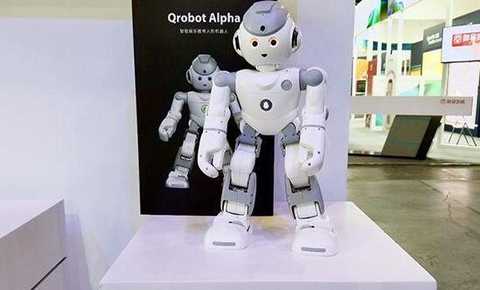
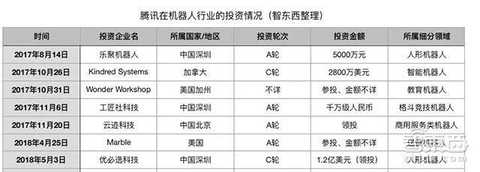
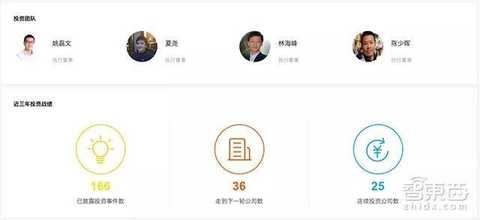
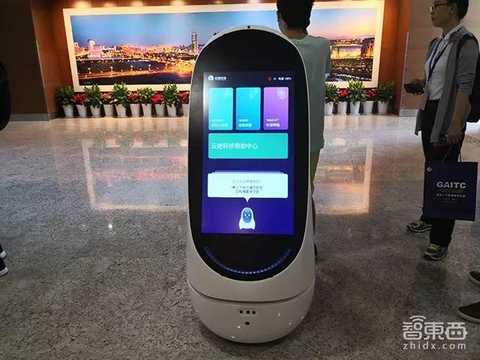
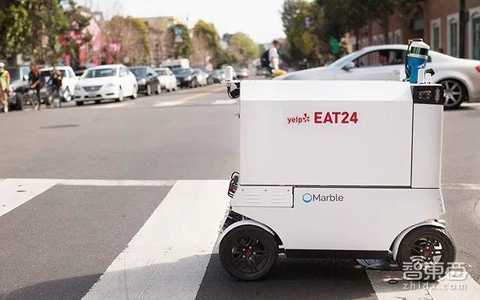
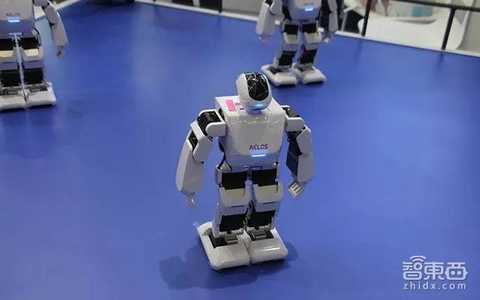
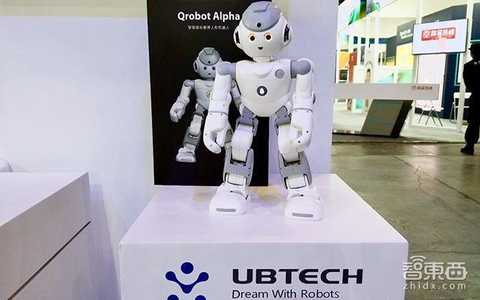
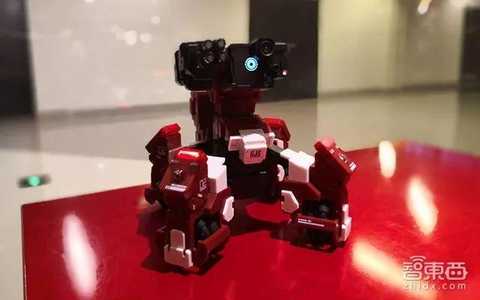
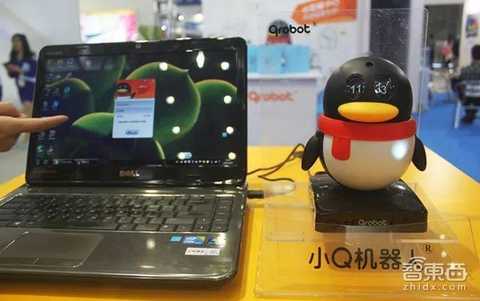
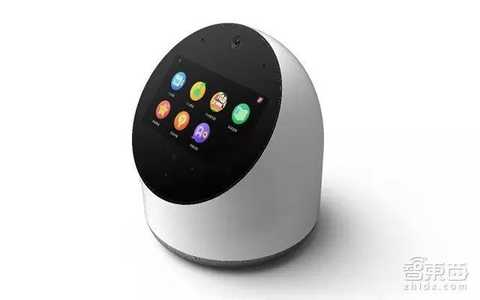
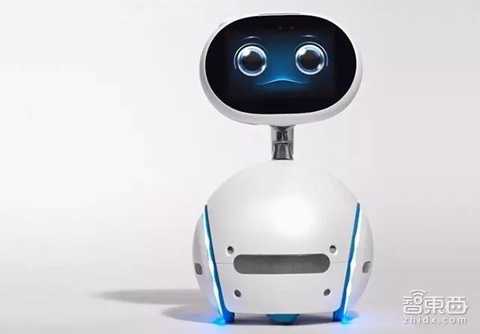
January 04, 2024